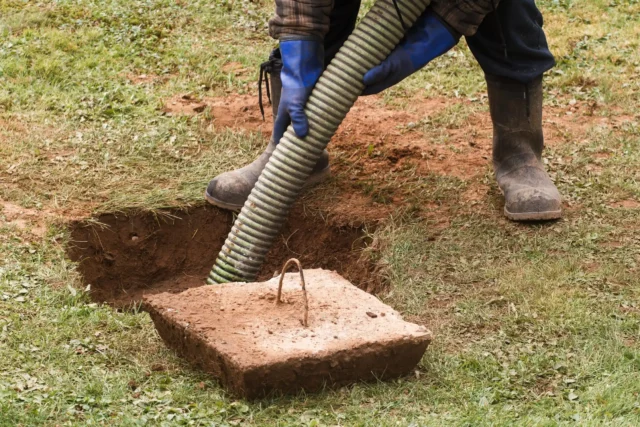Did you know that there are septic tank rules or even nc septic rules and regulations? If your property has a septic tank or is buying a property with a septic tank, make sure that you know the laws and regulations specified for design, installation, and maintenance. When it comes to septic tank service, septic tank pumping, and installations, trust Honeybee Septic Tank Service.
Given what goes into a septic tank, it is clear why the environment agency is keen to make sure that it stays in the tank instead of floating down to the local stream. It is essential that all, especially homeowners who own a septic tank system, know the rules, specifically where you can put them to where they will be disposed of. Moreover, if you want to know about the septic tank rules, seek the experts at Honeybee Septic Tank Service, the best septic tank service in North Carolina.
To further understand the rules and regulations for septic tank systems, here’s a brief orientation that you can take note of.
Proper Design for the Septic Tank
If you plan to install a septic tank, make sure that you choose a suitable location to put your septic tank. You can draw or create a layout or plan showing the septic tank system, with its proper distances to different water sources. This will help to calculate the tank’s volume to know how much sewage will enter the septic tank within 24 hours. Creating a layout plan will secure the system’s overall function and prevent inefficiencies like short on pipelines, drainage problems, and many more.
Sewer line for the septic tank
For a septic tank to perform smoothly, the line should be at least 15 meters away from any water source downhill, like a nearby well or spring. Moreover, the line should be straight as possible so that the water will flow continuously and prevent clogged and blockage in your pipelines. In terms of the pipe you are using, make sure that the materials are non-corrosive and hardwearing to prevent rusting problems and water contamination. This will guarantee better performance on your septic tank.
Construction of the septic tank
How should a septic tank be constructed? The tank walls can be made of poured, reinforced concrete, stone masonry, brick, or concrete blocks. To avoid infiltration around the tank and maintain enough space, make sure that it is built with a watertight, 25mm coating of cement plaster, applied in two coats. This is very much suitable for large septic tanks. For small tanks, the floor needs to be reinforced. The space between the walls and the side of the hole needs to be filled with gravel. Furthermore, the base of the septic tank should be at least 15 cm thick to avoid any possible leakages or sewage problems.
Maintenance of the septic tank
We prioritize the importance of following NC septic rules and regulations to ensure that your septic system is compliant and functioning properly. Understanding and adhering to these guidelines is crucial for the maintenance and safety of your property. Whether you’re installing a new system or maintaining an existing one, we are dedicated to providing services that meet the NC septic rules and regulations, helping you avoid fines and costly repairs in the future.
Septic System Permits
Before building any property, you have to always secure legal documents in your local government unit. Any personal or commercial residence who tends to install a septic tank system should undergo the Division of Environmental Health provision. It will help if you secure an improvement permit and authorization to construct before septic tank installations. This improvement permit is proof of onsite inspections that the homeowners strictly follow the North Carolina septic tank rules. This is also a way of securing proper waste disposal and law enforcement through legal remedies. All homeowners should abide by this since this is for the welfare and good of everybody in the community.
These are just some things you should know about North Carolina Septic Tank Rules. For inquiries on septic tank services and installations, give us a call and schedule an appointment with our team of experts in septic tank systems. Don’t settle with a mere, old way of cleaning your tank. Trust the professionals at Honeybee Septic Tank Service! Call us now!
